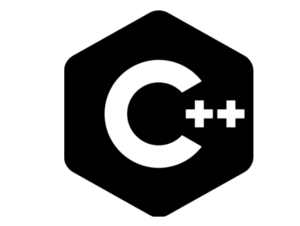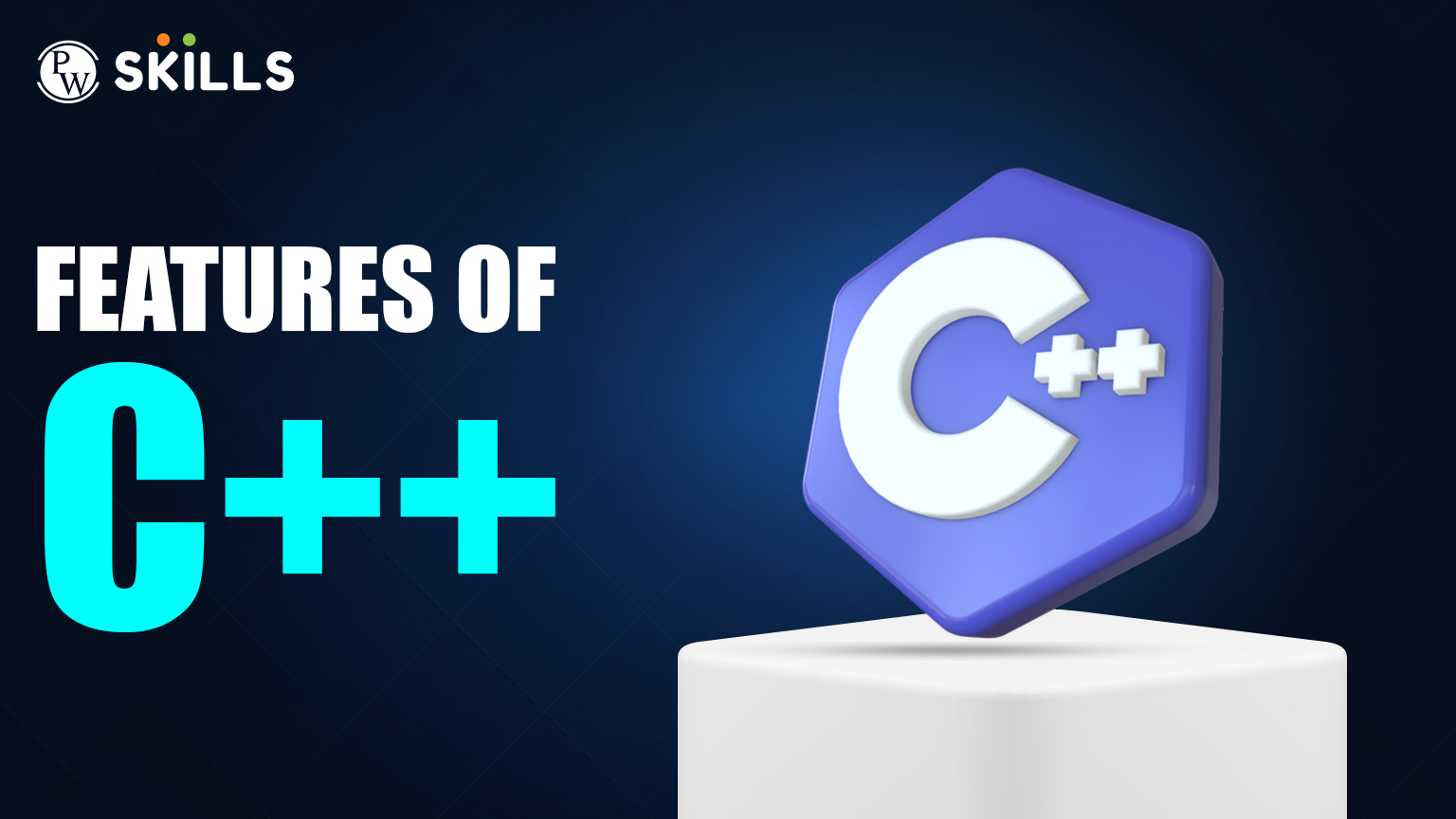C++ appears to be the silent warrior of programming. While newer languages like Python and Rust may shine in the limelight, the features of the C++ programming language are still enabling the backbone of modern technology. From operating systems to AAA video games, from banking systems to space software, C++ keeps proving itself.
Whenever students ask, “What are the five basic features of language like C++?” or professionals search about “What are the features of function in C++?,” the conversation always leads to the same thing: the features of C++ stand the test of time due to their strength.
This guide covers the top 10 features of C++ with real-world examples, easy analogies, and tables. By the end, you will not only know what makes C++ special, but you will also know why even by 2025 these features should make it an irreplaceable language.

-
Object Oriented Programming
C++ is most uniquely characterized by Object-Oriented Programming (OOP). OOP helps one create objects instead of writing everything in one long file, which are almost like mini-worlds with their own data and behavior.
Example:
class Car {
public:
string brand;
int speed;
void drive() { cout << brand << ” drives at “<< speed << ” km/h”; }
};
Which is why C++ feels so natural for the making of simulations and games and for large-scale systems. Simply put: OOP sorts messy-looking code into well-organized blueprints of reality.
-
Simplicity and Structure
C++ balances simplicity and control. It is not as abstract as Python but not quite as bare-bones as assembly. Programs are written in a structured format, which is subdivided into functions, classes, and modules.
Thus, when asked, “What are the five basic features of language like C++?” most people will start with simplicity and structured design. In this structure, coding becomes logical to learners; it’s like building something with Lego blocks.
-
Standard Template Library
Without STL, the features of C++ with examples would be lacking. It is a library of pre-built tools—containers, algorithms, iterators—that save you hours of coding.
Example using vector:
#include <vector>
#include <iostream>
using namespace std;
int main() {
vector<int> scores = {70, 80, 90};
scores.push_back(100);
for (int s : scores) cout << s << ” “;
}
Why reinvent the wheel when STL gives you ready-made solutions? This one reason is why C++ is still relevant among contests of programming, design, and systems.
-
Platform Independence
C++ is compiled as machine code, which is capable of running on several platforms (Windows, Linux, macOS). This particular feature of C++ ensures that once you wrote an application in this language, it could be modified to work on multiple systems with minuscule changes.
This is the reason the features of C++ language have been heavily relied upon in building operating systems like Windows, iOS, and Linux kernels.
-
Performance and Speed
Compared to Python and Java, the C++ programming language features a performance-wise stance. It is compiled and not interpreted, therefore taking away the middle layer that could have affected performance.
For industries like gaming, finance, or real-time systems alike, this feature of C++ is a must-have. Imagine coding a flight simulator in Python; it would be lagging like anything on a 90’s dial-up. C++ does guarantee speed and stability.
-
Memory Management
C++ gives developers very good control over memory by using pointers and new/delete.
Example:
int* p = new int(10);
cout << *p;
delete p;
This feature makes C++ a very powerful language in terms of writing memory-efficient applications. Although it is hard for beginners, once mastered, it gives a good sense of what goes on in a computer’s mind.
-
Functions and Local Variables-An Old Feature of C++
To this question: “What are the features of function in C++?”-the answer is modularity. The functions allow you to divide a complex program into smaller reusable segments.
And if the following question is posed: “What is the main feature of local in C++?”-locals exist only in their function, shielding them from whacking into other program sections. This is like having separate notebooks for each subject instead of one messy diary.
-
Extensibility – Another Cutting-Edge Features of C++ Language
Extensibility is one of the most intelligent features. You can upgrade the system with new features without changing the existing code.
For example:
Inheritance lets you extend a class.
Operator overloading lets you redefine how operators work.
Because of this, large C++ projects remain maintainable even after decades.
-
Compatibility with C
C++ was originally called “C with Classes.” Because most valid C code will run in C++, the backward compatibility characteristic of C++ is very unique as it bridges the old and new systems.
This greatly matters in industries where millions of lines of C code are in existence-such is telecom, aviation, or embedded systems.
-
Multi-Paradigm Nature
Unlike many languages that enforce a single style of coding, what distinguishes the C++ language is its multi-paradigm nature. You can code:
procedurally (like C)
object-oriented (with classes and objects)
generically (with templates).
This flexibility explains C++’s marvelous adaptability across diverse fields, ranging from the game development arena to high-performance servers.
Comparison Table: Features of C++ vs Java vs Python
| Feature | C++ | Java | Python |
| Speed | Very Fast (compiled) | Moderate (JVM) | Slower (interpreted) |
| Memory Management | Manual + Smart Pointers | Automatic (Garbage Collector) | Automatic |
| Paradigms | Procedural + OOP + Generic | OOP only | Procedural + OOP + Functional |
| Library Support | STL, Boost | JDK Libraries | Extensive modules (AI, ML) |
| Legacy Support | Compatible with C | Not backward compatible | Not backward compatible |
Real-World Applications of Features of C++
Real-Life Applications of C++ are discussed below in brief.
-
Game Development
Game development is one of the largest applications for various features of C++. Game engines like Unreal Engine and CryEngine use C++ because of its performance and the ability to OOP features. Direct memory access ensures seamless graphics rendering and real-time physics calculations, extremely important in high-budget AAA games like PUBG, Fortnite, or Call of Duty.
-
Operating Systems Built on C++ Features
C++ features are suited for OS design. Windows, parts of Linux, and macOS use C++ at the kernel level. Its performance, together with its platform independence and compatibility with C, allows for the efficient handling of low-level system resources. Creating fast and stable OS kernels would have been practically impossible without such C++ features.
-
Browsers and Rendering Engines with C++ Features
Whenever you are using Google Chrome or Mozilla Firefox, you might not realize that you’re using the features of C++ along with the examples. The rendering engines Blink (Chrome) and Gecko (Firefox) are both written in C++. Such speed and memory management offered by C++ are fundamental to service millions of simultaneous web requests.
-
Blockchains and Financial Institutions Powered by C++ Features
The features of C++ programming language play an important role in financial and banking software. High-frequency trading platforms and banking servers depend on both the speed and efficiency of C++ to process millions of transactions per second. Such features, including multi-paradigm support and memory efficiency, ensure that these systems stay secure and reliable.
-
Embedded Systems and IoT with C++ Features
C++ finds use in embedded systems, ranging from software in cars to smartwatches and IoT devices. The C++ features of portability, direct access to hardware, and performance optimization are all suitable for resource-starved embedded devices. Robotics companies frequently make extensive use of C++ to program motion-control and automations.
-
Using C++ Features for Cloud and Distributed Systems
The features of C++ are also an advantage for modern cloud platforms and distributed systems. Due to portability and speed, C++ is generally used in the backend of high-performance servers, database management systems, and even cloud-native applications. Its STL library and extensibility features are efficient for massive-scale data processing.
-
AI and Machine Learning Using C++ Features
While Python dominates the field of AI, many of the AI frameworks, including TensorFlow and PyTorch, were written using C++. C++ characteristics such as performance, control over memory, and compatibility with C make it the ideal language for the “heavy lifting” parts of machine-learning models. This enables Python to serve as a front end for its C++-powered backend.
Timeline: Evolution of C++
| Decade / Year | Evolution Milestone | Key Features of C++ Introduced | Impact on Programming |
| 1980s | Birth of C++ (originally “C with Classes”) | Classes, Objects, Basic OOP | Brought Object-Oriented Programming into mainstream software development. |
| 1990s | Standardization of C++ | Templates, Exception Handling, Standard Template Library (STL) | Introduced reusable components and generic programming with STL containers and algorithms. |
| 2000s | C++98 & C++03 Refinements | Namespaces, Inline Functions, Runtime Type Information (RTTI) | Improved modular programming and type safety, making large-scale projects easier. |
| 2010s | Modern C++ Era (C++11, C++14, C++17) | Smart Pointers, Lambda Functions, Move Semantics, Multithreading | Enhanced memory safety, functional-style programming, and concurrency support. |
| 2020s | C++20 and Beyond | Concepts, Ranges, Modules, Coroutines | Modernized the features of C++ programming language, making it competitive with newer languages while retaining speed and efficiency. |
Why C++ Features Are Still In Demand
From OOPs to performance, STL to memory control, C++ has some peculiar features in the programming world. For instance, if someone is searching, “What are the features of function in C++?” or “What are the five basic features of language like C++?”, the answer can be provided with glueing up abilities, speed, and depth of C++.
The features of the language assure that it will still be a programming mainstay even in 2025 when new languages start to rise and fall.
Also Read:
- Variables in C++: Declaration, Initialization, Rules, and Reference Variables (2025 Variables)
- How to Download Turbo C++ and Install
- Proxy Pattern | C++ Design Patterns
- History Of C++ | Timeline (+Infographic), List Of Versions, & More
What Will You Learn in PW Skills DSA Course?
Want to learn all about C++ programming language features while preparing for top technical interviews? PW Skills DSA in C++ course is intended for college students and working professionals.
With a structured syllabus, real-life coding problems, and mentor guidance, you will learn how to apply C++ features with examples for competitive exams and job interviews. Start by building your base with PW Skills today.
Due to the performance C++ can provide, and OOP qualities it possesses, it is suitable for real-time graphics and physics engines. Modularity, reusability, and local variable control, which are relevant for writing clean code. Some of the major industries that heavily rely on C++ are Finance, Gaming, Embedded systems, and OS development. Memory management by pointers is initially tough, but once learnt, it builds real problem-solving skills.Features of C++ FAQs
Why are features of C++ programming language still used for game development?
What are the features of function in C++ used for interviews?
Which industries benefit most from the features of C++ language?
What is the hardest feature of C++ to learn?

